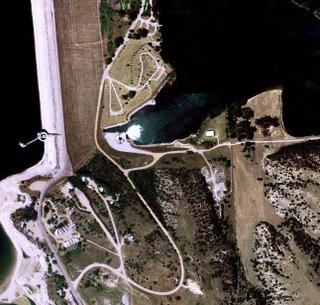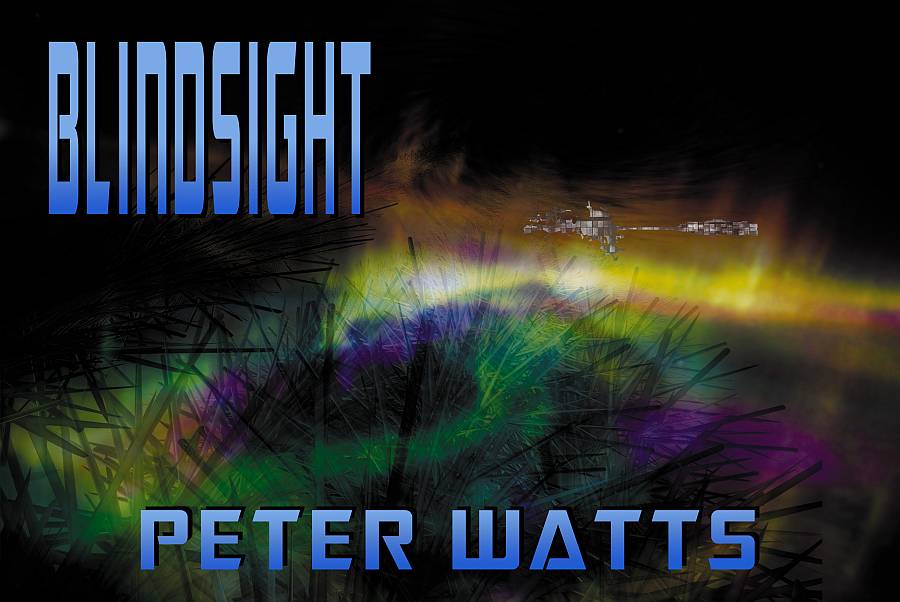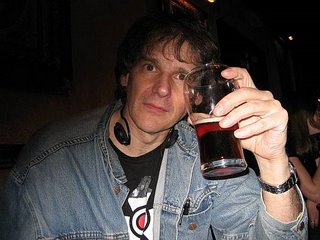Most of you here have read
Blindsight. Some of you have made it almost to the end. A few have even got as far as the references (I know this, because some of you have asked me questions about them). And so you might remember that old study Libet did back in the nineties, in which it was shown that the body begins to act on a decision a full half-second before the conscious self is aware of having
made the decision. A lot of
Blindsight's punchline hung on this discovery— because obviously, whatever calls an action into being must precede it. Cause and effect. Hence, the johnny-come-lately sense of conscious volition is bogus. We are not in control. I mean, really: a whole
half a second.
Half a second? Chun Siong Soon and his buddies
piss on Libet's half a second.
Nature Neuroscience just released
a study that puts Libet's puny electrodes to shame; turns out the brain is making its decisions up to
ten full seconds (typically around seven) before the conscious self "decides" to act.
Ten whole seconds. That's longer than the attention span of a sitting president.
It all comes down to stats. Soon
et al took real-time fMRI recordings of subjects before, during, and after a conscious "decision" was made; then they went back and looked for patterns of brain activity prior to that "decision" that correlated with the action that ultimately occurred. What they found was a replicable pattern of brain activity that not only preceded the decision by several seconds, but which also correlated with the specific "decision" made (click a button with the right or the left hand). (Interestingly, these results differ from Libet's insofar as subjects reported awareness of their "decision"
prior to the activation of the motor nerves, not afterwards. Whereas Libet's results suggested that action precedes conscious "decision"-making by a very brief interval, Soon
et al's suggest that actual decision-making precedes conscious "decision"-making by a much longer one. Bottom line is the same in each case, though: what we perceive as "our" choice has already been made before we're even aware of the options.)
This isn't exactly mind reading. Soon and his buds didn't find a circuit that explicitly controls button-pressing behavior or anything. All they found was certain gross patterns of activity which correlated with future behavior. But we could not read that information if the information wasn't there; in a very real sense, your brain must know what it's going to do long before
you do.
Obviously this can't be the whole story. If the lag between processing and perception was always that long, we would feel no sense of personal agency at all. It's one thing to think that you told your muscles to leap from the path of an approaching bus when the time discrepancy is a measly 400 millisecs; but not even organisms with
our superlative denial skills could pretend that we were in control if our bodies had leapt clear ten seconds before it even occurred to us to move. So I would think this is more proof-of-principal than day-in-the-life. Still. As
IO9 points out, given these results, how long before we can do without that stupid conscious part of us entirely?
Wired's online coverage is a bit more defensive. They bend over backwards to leave open some possibility of free will, invoking the hoary old "maybe free will acts as a veto that lets us
stop the unconscious decision." But that's bogus, that's recursive: if consciousness only occurs in the wake of subconscious processing (and how could it be otherwise? How can we think
anything before the thinking neurons have fired?), then the conscious veto will have the same kind of nonconscious precursors as the original intent. And since that information would be available sooner at the nonconscious level, it once again makes more sense to leave the pointy-haired boss out of the loop entirely.
But I'm going to take a step back and say that
everyone here is missing the point. Neither this study nor Libet's really addressed the question of free will at all. Neither study asked whether the decision-making process was
free; they merely explored where it was
located. And in both cases, the answer is: in the brain. But the brain is not you: the brain is merely where you live. And you, oh conscious one, don't make those decisions any more than a kidney fluke filters blood.
(Oh, and I've figured out who the Final Cylon is. For real this time. Romo Lambkin's cat.)
Labels: blindsight, neuro, science














